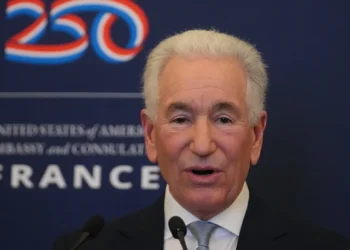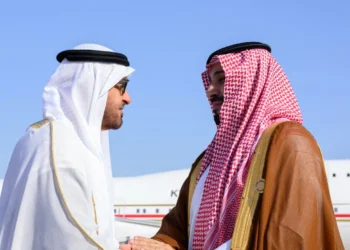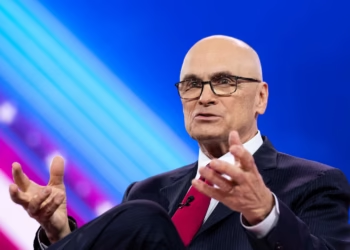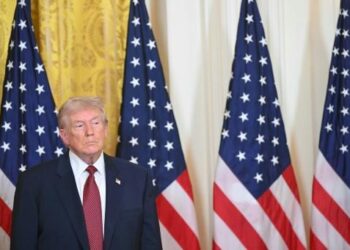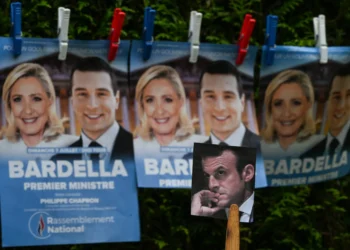DAMASCUS (Realist English). Turkey and Qatar have become pivotal players in President Donald Trump’s redefined Middle East, taking the lead in Syria’s post-Assad reconstruction while the US distances itself from traditional interventionism and “nation-building”.
Their roles are especially visible in Syria, where Qatari gas and investment and Turkish military coordination are driving reconstruction in formerly contested regions. The shift reflects Trump’s broader strategy: reduce direct US military presence and instead empower regional allies with aligned interests.
“Trump is focused on China, Iran, and Ukraine. He doesn’t want boots on the ground,” a senior Arab official told Middle East Eye. “In Syria, he has two partners — Turkey and Qatar — willing to manage the complexity.”
Strategic shifts in Syria
Qatar began gas deliveries to Syria via Jordan in March and now co-finances civil service salaries alongside Saudi Arabia. Simultaneously, Ankara and Damascus have entered quiet talks over a potential defense pact, as Israeli airstrikes persist across Syrian territory.
The turning point came in May, when the US, Turkey, and Qatar signed a $7bn energy agreement to build four gas-fired and one solar power plant in Syria. Qatari conglomerate UCC, owned by the al-Khayyat family, is leading the project. At the signing ceremony in Damascus, new US envoy Thomas Barrack praised the “alignment” between the three countries and invoked Trump’s vision of correcting the “Sykes-Picot mistake” through regional empowerment.
This cooperation marks the first major post-Arab Spring reconstruction initiative in the region, launched without Assad and under a new Syrian government led by Ahmed al-Sharaa, a former commander of Hay’at Tahrir al-Sham.
From insurgents to investors
Turkey and Qatar were early backers of the Syrian opposition. Unlike most Gulf states, which abandoned their support, Qatar hosted and funded opposition groups throughout the conflict. Turkey, with its long border and military capacity, remained the last stronghold of anti-Assad rebel support. Their alignment solidified after the Arab Spring and deepened during the 2017 Gulf crisis, when Saudi Arabia and the UAE imposed a blockade on Doha.
Now, this alliance is paying strategic dividends. While Qatar provides capital and reconstruction resources, Turkey delivers security cooperation and leverage over northern Syria. The US under Trump is leaning into this partnership — even as it prepares to reduce its own military footprint. Barrack told Turkish media in June that seven of eight US bases in Syria would be closed by year’s end.
Security realism: the PKK, Iran, and deconfliction
A major driver of US deference to Turkey is Ankara’s demand to neutralise Kurdish-led SDF forces, whom it views as an offshoot of the PKK — a designated terrorist group in both the US and EU. Trump’s administration appears to acknowledge Turkey’s security priorities, reversing years of friction under Biden.
“You can’t stabilise Syria without addressing the PKK,” said Bassam Barabandi, a former Syrian diplomat. “The US needs Turkey — or we risk another war.”
With Assad gone and Iran’s presence weakened, the strategic logic for a prolonged US presence has evaporated. Trump has stated that “Turkey has taken over Syria”, alluding to Sharaa’s alignment with Ankara.
UAE and the limits of influence
In contrast, the UAE faces growing challenges across its regional hotspots. Despite earlier efforts to rehabilitate Assad, including secret negotiations to lift US sanctions in exchange for curbing Iranian influence, the UAE has now been sidelined in Syria’s political transition.
While Dubai Ports World signed a pledge to invest $800 million in Tartus port, and France’s CMA CGM secured a deal to manage Latakia, these moves appear more transactional than strategic. Analysts suggest Russia approved the UAE’s port presence as a non-threatening balance to NATO or Turkish influence.
“The UAE is trying to stay relevant by investing,” said a Syria analyst based in Abu Dhabi. “But Sharaa won’t trust them with security.”
The broader UAE strategy, marked by its support for General Haftar in Libya and RSF forces in Sudan, has left it stretched. In Egypt, once its core ally, Emirati patience is thinning amid Cairo’s economic stagnation. Tensions over Palestinian displacement plans and regional diplomacy have further eroded its standing.
Post-Assad Syria: stability without elections
The new Syrian government under Sharaa appears focused on reconstruction and stability, not elections or political Islam. Trump lifted all US sanctions on Syria following lobbying by Erdogan and Saudi Crown Prince Mohammed bin Salman. Analysts suggest this reflects a consensus among Gulf powers to pursue economic integration — and to limit Iranian resurgence.
“The Saudis, Turks, Qataris, and even the Emiratis agree on this: they want Iran out and Syria stable,” said Robert Ford, the last US ambassador to Syria. “That means backing Sharaa — no matter who gets the credit.”
Despite past ideological divisions, there’s now pragmatic alignment across the region. The Gulf Cooperation Council, once fractured, is coalescing around economic diplomacy. Syria, as the first test case, may set the tone for a new Middle Eastern order.
“This isn’t about elections or democracy,” said the UAE-based analyst. “Sharaa has shown he’s not interested in exporting ideology. That makes him acceptable to everyone — even if no one fully trusts him.”



